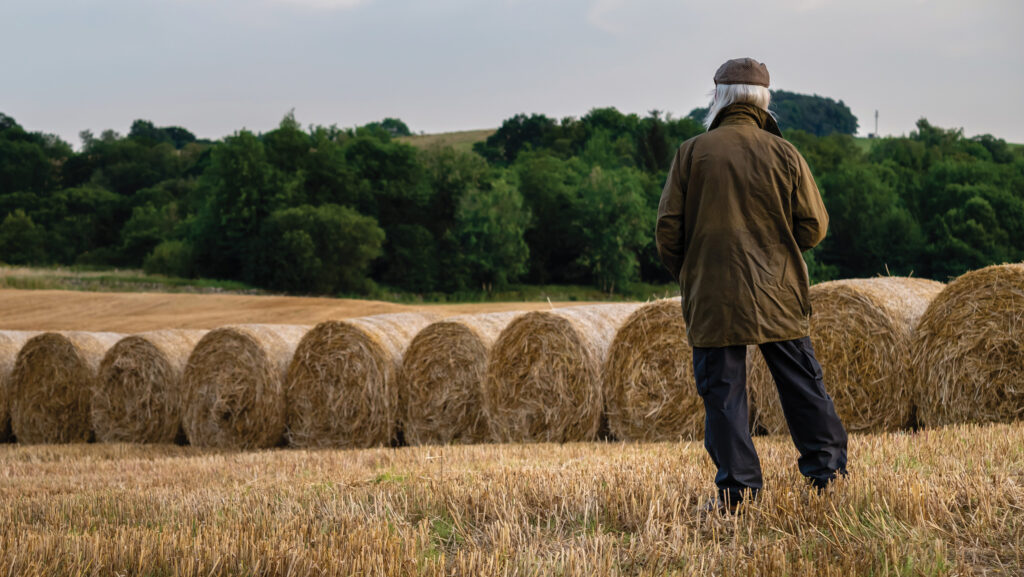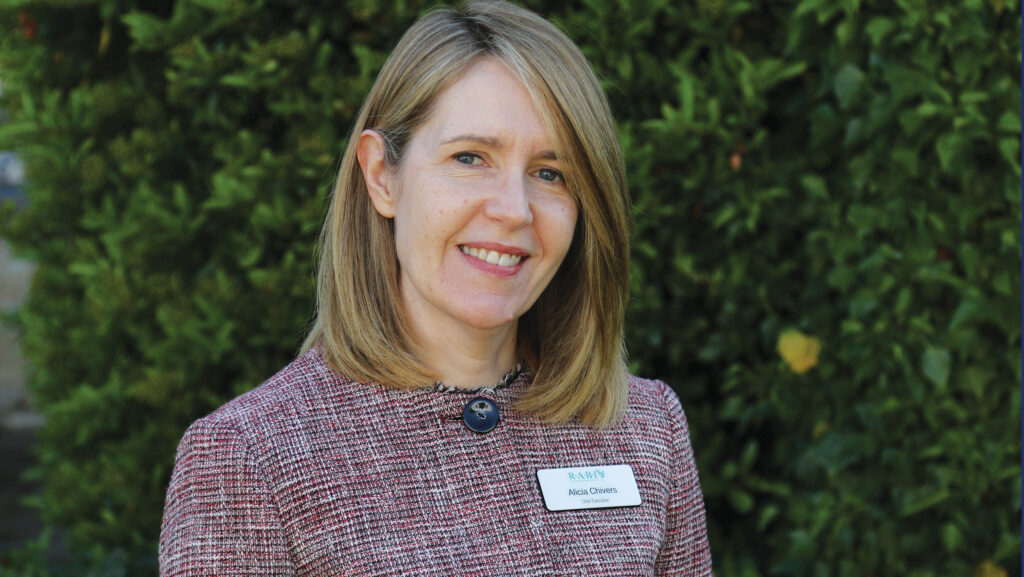Why is farming’s biggest charity moving into policy?
 © JohnFScott/iStockphoto
© JohnFScott/iStockphoto It is often said that prevention is better than cure, which is why the UK’s largest rural charity, the Royal Agricultural Benevolent Institution’s (Rabi), has this week announced a change in direction.
As well as its established “reactive” approach to helping rural people in crisis, it is now set to take a more “preventative” approach to combatting the many factors affecting UK farmers’ mental health and wellbeing – a move which will also see Rabi increasingly moving into policy.
See also: Farm Doctor: How to spot signs of poor mental health
Rabi regularly encounters farming people who have reached a state of crisis, where they are at a point in which they are forced to acknowledge that they are experiencing mental wellbeing issues.
When the charity first fully launched its mental health services, including counselling, training and the online “click and chat” service, the uptake from the farming community exceeded its forecast by over 12 times.
“I think that we are faced with very poor levels of mental wellbeing. This is statistical fact,” says Rabi chief executive Alicia Chivers.
“We want to try and get to people before they reach crisis – be that with their financial situation, their mental, or physical health.”

Alicia Chivers, CEO, Rabi © Rabi
The charity’s 2021 Big Farming Survey revealed that, at any point in time, farming people are facing at least six major stressors which are impacting on their business and their mental wellbeing.
“We can’t see, as a charity, that challenges will stop impacting on farming people,” Alicia explains.
“They may change in nature, but farming people, for the foreseeable future, are going to have a lot of challenges, and our survey has shown us that they are not as resilient as they could be to face and cope with those challenges. That is our driver.
“We have to narrow that gap. We can try and work with others to remove some of the challenges, or reduce some of them, but we can’t take them all away.
“So, we have to look at making that farming person, that farming family, best able to cope with that.”
Pledges
On Wednesday 17 April, Rabi launched its year of “Empowering the Worth and Wellbeing of Farming People” initiative in Westminster.
Building on the evidence from The Big Farming Survey, the year-long campaign will see the charity making new and ambitious commitments, while uniting organisations and individuals from across the sector, including policymakers and government officials.
“This is about recognition and buy in, looking to our community and government to recognise that there are issues here that, together, we can do something about,” explains Alicia.
As part of the campaign, Rabi has committed to the following pledges:
- To increase its spending on mental health services by up to £10m over the next five years
- Increase its focus on mental wellbeing programmes for young people
- Discuss and develop locally delivered wellbeing solutions that achieve results.
During the launch event, several industry organisations also pledged their support to the Empowering Worth and Wellbeing initiative.
They include:
- National Federation of Young Farmers’ Clubs (NFYFC) which pledged to use Rabi’s Click & Chat mental wellbeing platform. Following the completion of a pilot scheme, the hope is this will then be rolled out to thousands of YFC members aged 11 and over.
- Farm Safety Foundation (Yellow Wellies) which pledged to work with Rabi to introduce a new digital mental health training programme in agricultural colleges, backed by ongoing support via access to Rabi’s Click & Chat platform. Together, the two charities will work on a joint funding bid for Defra to help support the first year of the training and wellbeing programmes.
- The Institute for Agriculture and Horticulture (Tiah) which pledged to work with Rabi on a bursary scheme. Rabi will work with Tiah to provide 500 bursary-supported memberships, providing access to Tiah’s training platform for farming people who wouldn’t otherwise have the means to utilise the scheme.
Moving into policy
A key element of driving the resources to make the community more resilient will come from Rabi’s decision to move more into the policy space.
Here, Alicia says, the charity has more scope to influence decision and policymakers, sharing the information that they gather on the ground, and on farms.
“We know that we are a part of this, and we need all sorts of other organisations and individuals to be involved, particularly government and legislators and policymakers.
“What we see is being able to help policymakers to understand, so we are a voice to help influence. But it is also about providing evidence, and potentially solutions.”
Despite the change in its approach to preventative measures, Alicia maintains that crisis response will remain a core element of Rabi’s services.
“We have to be realistic, and we have to acknowledge that there will always, in the foreseeable future, be farming people that will come to us in crisis, so that has to remain, and will remain, a core part of our business.
“We absolutely have a lot of people in farming families who are struggling with poor mental wellbeing. So, we cannot ignore that – it can’t continue. People are too important.”
Funding
With Rabi pledging to increase its spending on mental health services by up to £10m over the next five years, the question of how the charity intends to fund these new resources comes to the fore.
“We are the largest farming charity, and we are probably the best resourced farming charity, so an element of this will be funded by our reserves,” explains Alicia.
“We have a long-term strategy of ensuring that we use all of our resources to their best possible means for our current and future beneficiaries.”
Some of the money will also be attained through increased fundraising efforts.
“We have a really strong belief that this is something that people will fund because the need is so apparent, and we’re going to have really effective, long-term preventative solutions.”
Collaboration
Asked whether fulfilling its new strategy will see Rabi having greater collaboration with other farming charities, such as the Farming Community Network (FCN) and the DPJ Foundation, Alicia says that this is something that the charity already strives for, and will certainly continue.
“It already happens,” she explains. “It comes back to the purpose of the initiative – we can’t do it on our own. Unfortunately, there is no limit on need, and I do not care how a farming person gets to support.
“We just need to get them to that support.
“Whether someone first makes contact with FCN or Rabi, we work together at a local level to build a network around them.”
The Big Farming Survey
Launched by Rabi in 2021, The Big Farming Survey is the largest research project relating to the wellbeing of farming people to date.
Surveying over 15,000 members of the farming and agricultural community, the project provided a wealth of information and a window into the wellbeing of farmers across the country.
Key findings include the following:
- 36% of the farming community are probably or possibly depressed
- Over half of the women in agriculture surveyed (58%) experience mild, moderate or severe anxiety
- The most commonly reported sources of stress are regulation, compliance and inspection, bad/unpredictable weather, and loss of subsides/future trade deals
- High levels of physical health issues impact many across the farming community – over half (52%) experience pain and discomfort, one in four have mobility problems, and 21% have problems in undertaking usual tasks due to health issues
- Only 59% of respondents believe their farming business is viable over the next five years.
Rabi consumer survey results
A survey of UK consumers conducted by Rabi in April 2024 has revealed strong public backing for fair prices and protecting farmers’ mental health.
Of the 1,039 respondents, 90% agreed that farmers can’t be expected to provide food and environmental benefits to the detriment of their mental health.
The respondents, aged between 17 and 79 and based in both urban (75%) and rural locations, had a high recognition of the contribution that farmers make to the countryside, local economy and rural community.
They also recognised that farmers work towards national targets on food security, climate and the environment.
Rabi’s chief executive Alicia Chivers says: “I am heartened by the public’s wider recognition of farmers’ contributions to society and the collective need to protect our farming peoples’ mental health.
“We believe that collaboration is key if we are to make a tangible difference to the health of our farming communities.
“It’s imperative we all work together to develop solutions that prevent people spiralling into poor mental health.
“It’s reassuring to see the public agreeing that improving access to mental health services for farmers should be a collective effort.”
